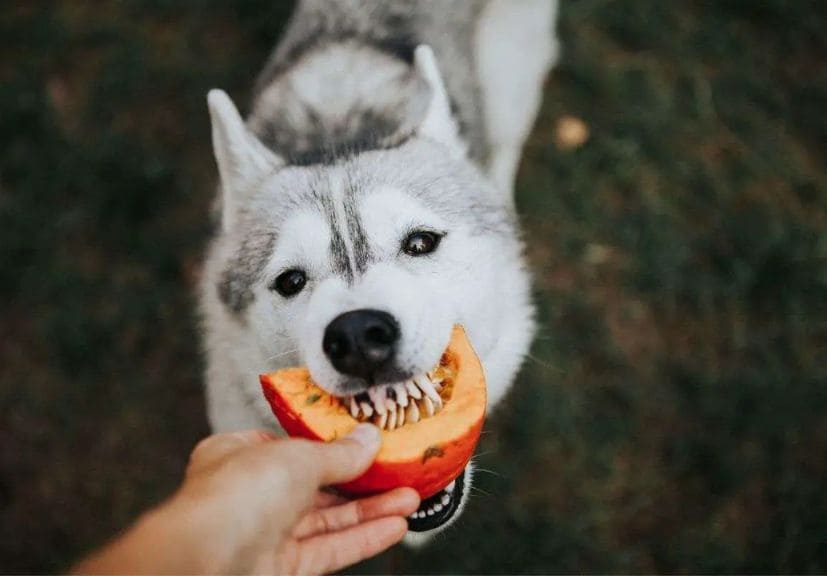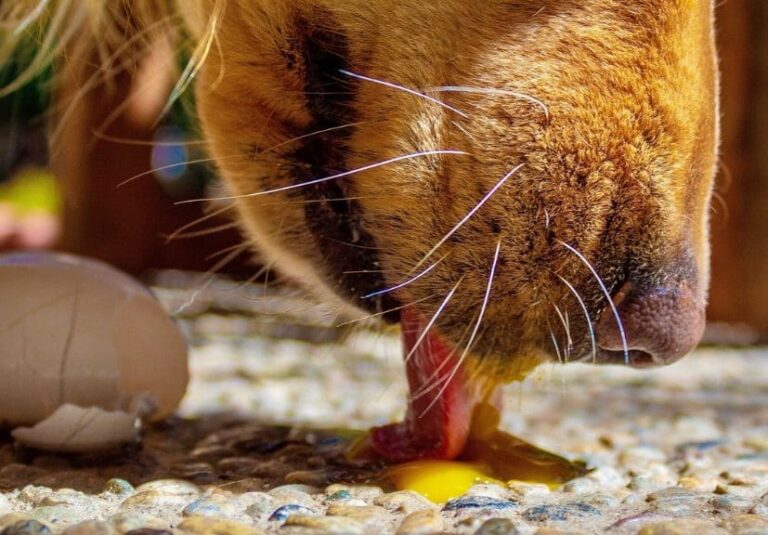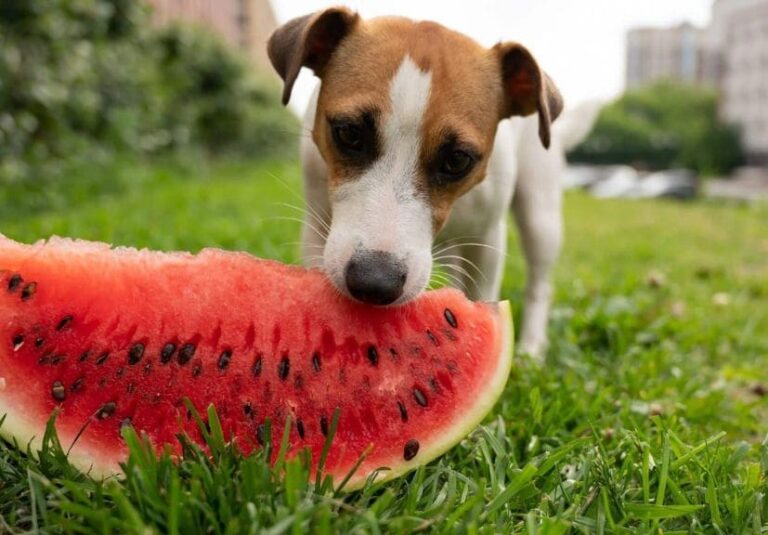Health Benefits of Pumpkin for Dogs
Pumpkin, often associated with fall festivities, is a tasty treat and a nutritional powerhouse for dogs. Packed with essential vitamins, minerals, and fiber, pumpkin offers numerous health benefits for our furry friends. Let’s delve into the nutritional profile of pumpkin and explore how it can enhance your dog’s well-being.
Nutritional Profile of Pumpkin
Pumpkin is rich in fiber, vitamins, and minerals just like carrots that your dog can happily eat, and are beneficial to dogs. Some of the essential nutrients in pumpkin include:
- Fiber: Pumpkin is an excellent source of dietary fiber, vital for proper digestion and bowel regularity in dogs.
- Vitamins A, C, and E: These vitamins are crucial for boosting the immune system, promoting healthy skin and coat, and supporting eye health.
- Minerals: Pumpkin contains potassium, iron, and magnesium, which support muscle function and overall health.
How Pumpkin Benefits Dogs’ Health
Beyond its culinary appeal, pumpkin offers a multitude of health benefits for dogs. From digestive issues to weight management, this versatile fruit can address various common canine ailments. Let’s explore how pumpkin can naturally support your dog’s overall health and well-being.
- Supports Digestive Health: The high fiber content of pumpkins makes them ideal for resolving common digestive issues in dogs, such as diarrhea or constipation. Pumpkin for dogs with upset stomachs is a tried-and-true remedy. Adding mashed pumpkin for dogs to their food can help firm up loose stools or soften them when needed.
- Helps with Anal Gland Health: Many dogs suffer from impacted anal glands, which can cause discomfort and the infamous “scooting” behavior. Feeding your dog pumpkin for anal glands can help because the fiber bulks up the stool, putting gentle pressure on the glands and allowing them to express naturally.
- Weight Management: If your canine needs a healthy dog weight, pumpkin is a great low-calorie, high-fiber food to help them feel full while eating less. Incorporating 100% pure pumpkin for dogs into their diet can aid in healthy weight loss without compromising nutrition.
- Nutrient Boost: Organic pumpkins for dogs contain vitamins and antioxidants that promote healthy skin, coat, and immune system support. For active breeds like golden retrievers, huskies, and French bulldogs, pumpkins can be an excellent source of natural nutrients.
Pumpkins That Dogs Can And Cannot Eat!

Pumpkin is a nutritious treat for dogs, but it’s important to understand the different forms and how they can impact your pet’s health. Let’s explore the types of pumpkins that dogs can safely consume and those that should be avoided.
Types of Pumpkin Dogs Can Eat
- Canned Pumpkin: Always opt for 100% pure or solid-packed pumpkin when choosing a pumpkin. Avoid products labeled “pumpkin pie filling,” as they contain added sugars and spices that harm dogs. Where to buy canned pumpkins for dogs? Most grocery stores carry it, and it’s available online in pet stores and on Amazon.
- Fresh Pumpkin: Fresh pumpkin can be cooked, mashed, and served to dogs. If you’re wondering how to cook raw pumpkin for dogs, bake or boil it until soft, then mash or puree it. You can even freeze portions later, as frozen pumpkin dog treats are a popular snack.
- Pumpkin Seeds: Can dogs have pumpkin seeds? They must be cleaned, roasted, and served without shells or seasoning. Pumpkin seeds are rich in healthy fats and antioxidants, but feeding them in moderation is key.
Pumpkin Dogs Should Avoid
While pumpkin itself is nutritious, certain forms of pumpkin can be harmful:
- Can dogs eat pumpkin pie? Traditional pumpkin pie for dogs is unsafe due to sugar, spices, and often nutmeg, which is toxic to dogs.
- Can dogs eat pumpkin bread? Unfortunately, most pumpkin bread contains sugar, spices, and sometimes chocolate chips or raisins, which harm dogs. Avoid feeding your dog baked goods like pumpkin pie dogs or pumpkin bread.
How to Cook Pumpkin for Dogs?
Incorporating pumpkin into your dog’s diet is easy and delicious! There are several ways to prepare this nutritious treat, ensuring your furry friend enjoys its benefits. Let’s explore different cooking methods to make pumpkin palatable and enjoyable for your dog.
- Boiled Pumpkin for Dogs: Cut the pumpkin into chunks, remove the seeds, and boil until tender. Mash it and add it to your dog’s meal.
- Baked Pumpkin: Roast the pumpkin in the oven and scoop out the soft flesh. This can be blended into a puree or served as is.
- Pumpkin Dog Treats: You can mix 100% pure pumpkin puree with dog-safe ingredients like oats and peanut butter to make homemade pumpkin dog treats. You can also make pumpkin-frozen dog treats by mixing pumpkin with yogurt and freezing it in small molds.
Can Dogs Be Allergic to Pumpkin?
Dog allergies are common and affect canines in different ways, including the environment and foods. While rare, dogs can have allergies to pumpkins. If you notice symptoms like itching, skin irritation, or gastrointestinal distress after feeding your dog pumpkin, discontinue use and consult your veterinarian. Can dogs be allergic to pumpkins? Yes, just like with any food, individual dogs may develop sensitivities.
Pumpkin Recipes and Fun Ideas
Pumpkin isn’t just for humans! There are countless delicious and nutritious treats you can make for your dog using this versatile ingredient. Let’s explore some fun and easy pumpkin recipes that your canine companion will love.
Frozen Pumpkin Treats for Dogs
To make frozen pumpkin treats for dogs, mix canned pumpkin with plain Greek yogurt and freeze in ice cube trays. These are great for hot days and provide a nutritious snack.
Pumpkin Chews for Dogs
Create your pumpkin chews for dogs by dehydrating thin slices of fresh pumpkin. These chewy snacks are perfect for dental health and keep dogs occupied.
Pumpkin Dog Biscuits
Combine 100% pure pumpkin, oats, and peanut butter to make simple dog biscuits. Roll out the dough, cut into shapes, and bake until crisp.
Can Dogs Eat Pumpkin Pie?
Many dog owners wonder if dogs can have pumpkin pie or if pumpkin pie is okay for dogs. The answer is no. Pumpkin pie dogs are not a good idea due to their sugar content and spices like nutmeg, which are toxic to dogs. If your dog accidentally eats pumpkin pie, monitor them closely for signs of illness, such as vomiting or lethargy.
Pumpkin for Dogs with Special Conditions
Beyond its digestive benefits, pumpkin can also be a supportive food for dogs recovering from illnesses or surgeries. Its gentle properties can aid in healing and promote overall well-being. Let’s explore how pumpkin can be a valuable addition to your sick dog’s diet.
Pumpkin for Dogs with Protein-Losing Enteropathy
Pumpkin can benefit dogs with digestive disorders like protein-losing enteropathy, as it helps regulate bowel movements and adds essential nutrients.
Pumpkin for Sick Dogs
Sick dog care is essential for their lifespan, whether it is with diet or exercise. Dogs recovering from illness or surgery often benefit from pumpkin’s gentle fiber and nutrients. It’s easy on the stomach and can help stimulate their appetite.
Where to Buy Pumpkin for Dogs
If you’re wondering where to buy pumpkin puree for dogs, you can find authority pumpkins for dogs at most pet stores or grocery stores. Always ensure you’re purchasing 100 pumpkin puree without additives or sugar.
Final Thoughts: Can Dogs Eat Pumpkin?
Can dogs eat pumpkin? Absolutely! Pumpkin offers numerous health benefits for dogs, including improved digestion, skin health, and weight management. However, it’s essential to serve it in safe, cooked forms and avoid sugary, spiced foods like pumpkin pie or pumpkin bread. Incorporating organic pumpkins for dogs or solid-pack pumpkins into their diet in moderation can greatly support your dog’s overall well-being. If you are uncertain what else you can feed your dog or not, keep visiting PetJazeera for such a piece of information!
Common Questions About Dogs and Pumpkin
Can puppies eat raw pumpkins?
Raw pumpkin is difficult for dogs to digest and can cause gastrointestinal discomfort. It’s best to serve cooked pumpkin.
Can dogs eat raw pumpkin guts?
While pumpkin guts (the stringy parts inside the pumpkin) aren’t harmful, they aren’t very digestible. It’s better to remove them and serve only the cooked flesh.
Can dogs eat pumpkin shells?
No, the shells or rind of a pumpkin are too tough for dogs to chew and can be a choking hazard.
What is a good fiber for dogs?
Pumpkin is an excellent source of soluble and insoluble fiber. It helps regulate bowel movements and promotes healthy digestion.
Can dogs eat mini pumpkins?
Mini pumpkins are generally safe if cooked, but avoid giving them raw or with their seeds, as these can pose digestive issues.
How many pumpkins do I give my dog for diarrhea?
Start with 1 teaspoon of mashed pumpkin for dogs for small dogs and 1-2 tablespoons for larger dogs. Gradually adjust based on your dog’s size and how they respond.




